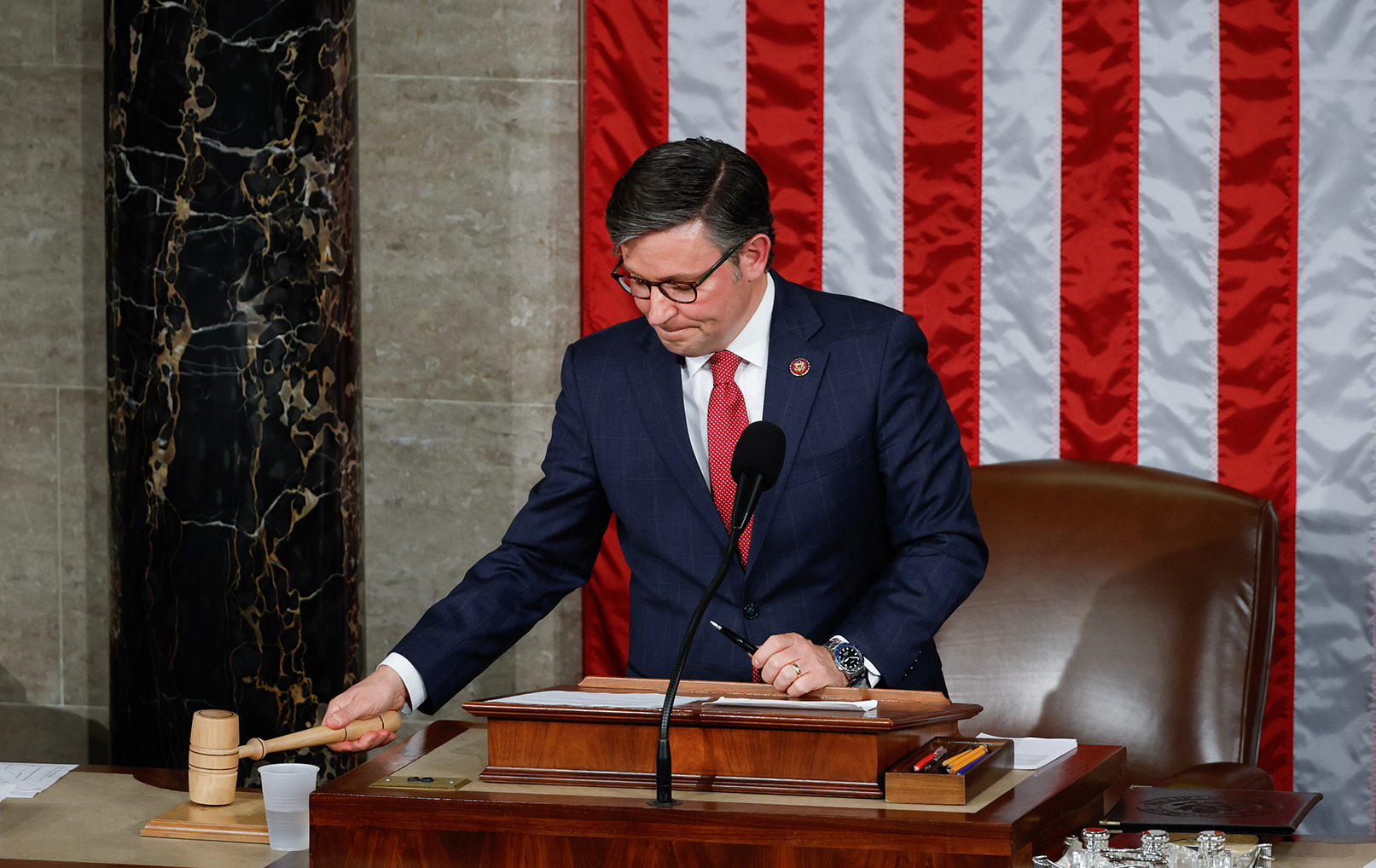Speaker Johnson's Ukraine aid plan: What it includes and chances of US Congress approval
 Speaker of the US House of Representatives Mike Johnson (photo: Getty Images)
Speaker of the US House of Representatives Mike Johnson (photo: Getty Images)
At the beginning of the week, the Speaker of the United States House of Representatives, Mike Johnson, introduced his initiative regarding assistance to Ukraine, Israel, and Taiwan, dividing these issues into separate bills. While Congress awaits the corresponding documents, the White House and Democrats have already expressed their stance on the Speaker's idea. What Johnson proposes and whether there are chances for support for his idea in Congress are detailed in the RBС-Ukraine article below.
During the preparation of the material, statements from American officials and congressmen, as well as information from The Hill and Axios, were used.
Contents
Johnson's initiative
Discussions about dividing aid to US allies into separate packages began immediately after Iran's attack on Israel. As the unified bill for aid to Kyiv and Tel Aviv stalled in the US House of Representatives, Republican lawmakers began calling for urgent consideration of Israel separately from Ukraine.
Democrats and the US presidential administration were staunchly against dividing the aid and demanded that the House finally consider the unified bill, which had been endorsed by the Senate as early as February.
"We do not support a separate bill that funds only Israel," said White House representative John Kirby at a briefing for journalists in the White House.
Despite criticism, on Monday Speaker Johnson announced his initiative during the Republican conference meeting in the House of Representatives, consisting of four separate bills regarding Ukraine, Israel, Taiwan, and US national security issues.
Currently, it is not known for certain what will be included in Johnson's bills. It was expected that the documents would be introduced to Congress on Tuesday, April 17, but the texts have not yet been published.
However, the American news agency The Hill revealed some details about the fourth bill - concerning US national security. Despite its name, the provisions of the potential document relate not only to national security but rather seem aimed at appeasing Republicans.
Thus, Johnson's bill is likely to propose a ban on TikTok, provisions allowing the US to use confiscated Russian assets to aid Ukraine, a lend-lease act for military assistance, as well as converted credits to facilitate humanitarian aid.
At the same time, Johnson's initiative will not include provisions to strengthen the US-Mexico border. The issue of the border was the "stumbling block" that led to the unified aid bill being sidelined, and its absence in Johnson's initiative has already begun to cause dissatisfaction among radical Trumpist Republicans.
However, it is expected that Johnson will bring all four bills to consideration under one procedural norm, allowing congressmen to propose their amendments. This carries the risk of some delay in the process. Although this is not a guarantee that the amendments will be approved. There is also hope that ultimately all four bills will be voted on as a single package rather than sequentially. However, as Johnson himself stated at a press conference on Tuesday, discussions on this matter are ongoing.
There is another option: for each of the projects (Ukraine, Israel, Taiwan, TikTok, and confiscation), the House of Representatives will vote separately, but they will be passed to the Senate as a single package. The idea is to prevent senators from choosing individual provisions they are willing to support and instead vote for one package.

Johnson has put forward his initiative regarding aid to Ukraine (photo: Getty Images)
Will Congress support it
Just a few days ago, Democrats in Congress and the White House were staunchly against splitting aid to Israel and Ukraine, understanding that Republicans might simply disrupt any potential deal regarding separate consideration of these issues. But yesterday, their rhetoric changed abruptly.
During a conversation with journalists on Tuesday, Kirby stated that "at first blush," Johnson's initiative aligns with the White House's requests.
"It does appear at first blush that the Speaker’s proposal will in fact help us get aid to Ukraine, aid to Israel, and needed resources to the Indo-Pacific for a wide range of contingencies there. At first blush it looks like that, we just want to get more details," said the White House representative.
Democratic leaders in the House of Representatives have expressed readiness to support Johnson's idea, although they have put forward their condition - Johnson's bills must contain key provisions from the Senate document regarding aid to Ukraine, Israel, and Taiwan.
"The important point is the substance of the legislation. The substance matters" emphasized House Representative and leader of the Democratic caucus, Pete Aguilar.
Another significant signal was the support for Johnson's initiative from the heads of important committees in the House of Representatives. This indicates that Republicans are ready to approve the Speaker's bills, even if Trumpists are against it.

Congressmen are waiting for Johnson to introduce his bills. (Photo: Getty Images)
When Congress will vote
At the moment, it is impossible to accurately predict the date of the vote in Congress on Johnson's initiative. It depends on when the texts of the bills will be presented. It was expected that the documents would be submitted to Congress on Tuesday, but this did not happen.
However, as Johnson himself stated, after the bills are introduced to the House, congressmen will have 72 hours to review them. Therefore, the vote will not take place until at least three days after the texts appear.
If Johnson introduces the bills today, April 17, then the House is unlikely to have time to consider them this week, as congressmen go to work in their districts on Fridays. This break in sessions, according to the House of Representatives' work schedule, will last until April 29. However, of course, it cannot be ruled out that Johnson may initiate an extension of the House's work
Moreover, time is against Johnson. Dissatisfied with his actions this week, the ultra-radical Trumpist Marjorie Taylor Greene (a potential Republican vice-presidential candidate, paired with Trump) has revived her initiative for Johnson's resignation.
According to House rules, only a single congressman can bring the speaker's resignation to a vote, but Greene has already been joined by her Republican colleague Thomas Massie.
The resolutions for resignation do not require prior inclusion on the House agenda. So if Greene decides to tur
The resolutions for resignation do not require prior inclusion on the House agenda. So if Greene decides to turn her threats into real actions, the vote on Johnson's resignation could occur even before congressmen get to vote on providing aid to Ukraine and related bills.
By general rule, the minority in the House of Representatives doesn't help the speaker hold onto their seat against the majority. However, there could be an exception in this case – many Democrats are expressing willingness to support Johnson.
But the speaker cannot take these promises as guarantees, especially if the House hasn't reached the point of considering the aid bills yet, notes Axios. Democrats have valid fears of being tricked by Johnson – if they save him from resignation, he can later sabotage the Ukraine vote.
Time is ticking by the hour, as both the House and the Senate need to review all bills before their upcoming weekly break. As experience shows, delaying the adoption of such politically sensitive projects often leads to them being cluttered with amendments and, ultimately, the breakdown of all agreements.

